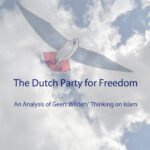James Sofasonke Mpanza and Johannesburg’s Squatter Movement 1938 to 1947
No comments yetwww.sahistory.org.za. – The Natives Urban Areas Act of 1923 declared that blacks were temporary sojourners in urban areas and would only be permitted to reside there when employed. At the end of their working life they were to return to their homelands. The Act, intended to cover urban centres across South Africa, was rigorously applied by the Johannesburg Municipal Council (JMC). It provided the JMC with a legal basis to clear the inner city of what it considered insanitary areas. Between 1924 and 1931 the JMC issued eviction orders to blacks (individuals and families) residing in inner city slum yards to vacate these areas. These were contested in the courts, who ruled the eviction orders illegal if the JMC did not provide alternative accommodation to those affected.
Early in the 1930s, with the Great Depression lifting and the mining industry revitalized, the JMC was able to raise revenue to undertake a housing programme. This resulted in the establishment of Orlando Township in 1932. Slum clearance in the inner city of Johannesburg began in earnest in 1932 and was completed in 1937, when residents of Prospect Township were relocated to Orlando.
It soon became apparent that the number of houses provided by the JMC in Orlando was inadequate to cover all slum residents forced out of the inner city. Some sought accommodation in the freehold townships of the Western Areas. These included Sophiatown, Newclare and Martindale. Others opted to sublet in Orlando, becoming subtenants. The number of subtenants grew steadily in the second half of the 1930s, increasingly sharply during World War II.
Read more: James Sofasonke Mpanza and Johannesburg’s squatter movement 1938-1947
You May Also Like
Comments
Leave a Reply






